Plant pathologist Lizzy Mwamburi of Kenya and molecular biologist Azizul Haque of Bangladesh want to promote sustainable agriculture in their countries. And through a TWAS-Sida Collaborative grant (2022–2024), they received their chance.
They are now combining their skills to develop a farming method based on the use of soil bacteria and fungi to shield tomatoes from parasites. Their objective is to grow insecticide-free tomatoes, to reduce the unintentional health hazards for the populations that eat vegetables contaminated with pesticide residues.
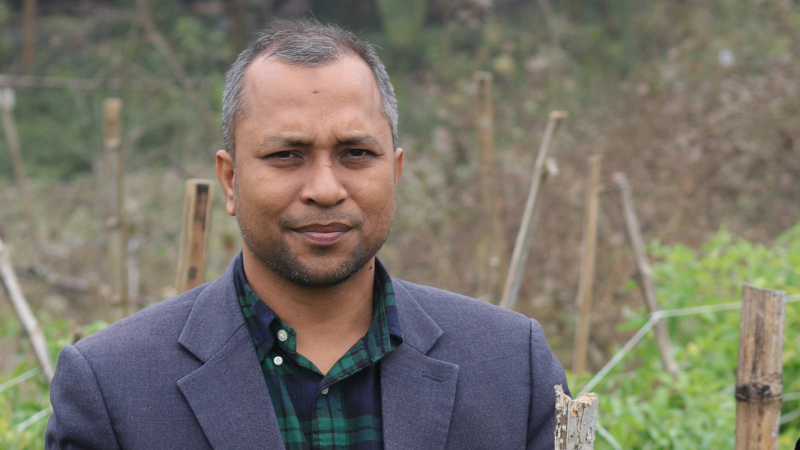
Sida, the Swedish International Development Cooperation Agency, is a TWAS partner since 1991. The collaborative programme was launched in 2022 to foster partnerships between developing world scientists living far apart. To be eligible, two scientists—one woman and one man—must be leaders in their fields and carry out the project in one of the science-and-technology-lagging countries identified by TWAS.
Receiving a Sida collaborative grant was important for Haque, of Hajee Mohammad Danesh Science and Technology University in Dinajpur, Bangladesh. "Thanks to Sida's grant, I'm receiving collaboration proposals from important foreign institutes, developing projects for the future,” he said.
Sida's support was equally important for Mwamburi of the University of Eldoret, in Kenya. "Sida's collaborative grant has boosted my reputation. I'm now the director of research and innovation at Eldoret University," she said.
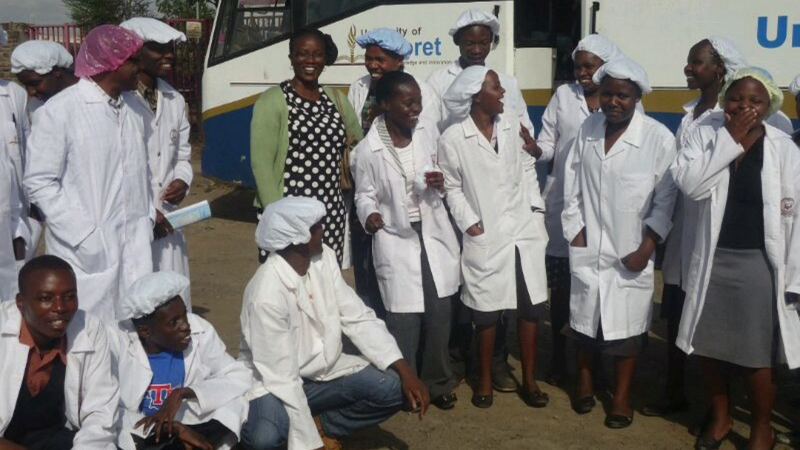
The oldest Sida-funded grant programmes are the TWAS Research Grants Programme in Basic Sciences for Individuals and TWAS Research Grants Programme in Basic Sciences for Groups. In 2022, they were joined by the collaborative scheme and, that same year, by a fourth programme called the TWAS Research Grants Maintenance Programme. With this programme, past grantees who purchased equipment through a Sida grant may request financial support to repair broken laboratory equipment.
Securing food to secure income and health
Tomatoes are a food staple in many developing countries, useful because it grows fast and is rich in other nutrients like vitamin B and C. In Kenya, it is a major income source for smallholder farmers, representing 7% of all horticultural produce. In Bangladesh, they are equally relevant for the economy. But pests such as the southern root-knot worm and a moth called the tomato leafminer frequently damage or destroy tomato crops.
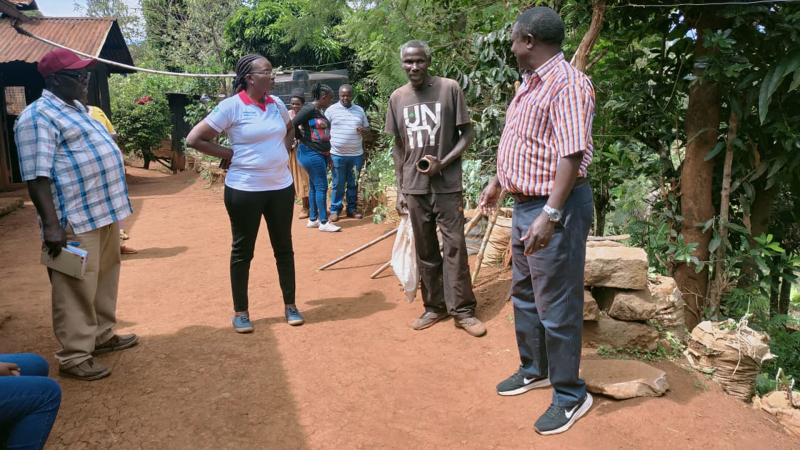
Insecticides frequently fail to kill enough pests. Due to limited knowledge about alternative methods, farmers tend to administer larger than needed amounts of pesticides, with consequences for consumers and the environment. "An alternative strategy to fight these pests is biological control: using living organisms such as insects or fungi to control the parasites," explained Mwamburi.
TWAS has been an important contributor to Mwamburi’s career. She gained specialized training on a maize parasite called the fall armyworm at Georg-August University in Gottingen, Germany, through a TWAS-DFG Cooperation Visits fellowship (2013). Then, she received a Sida grant for individual scientists (2018–2021), to work on research to control the armyworm. As a result, she was promoted to associate professor in the Department of Biological Sciences, at Eldoret University. "Thanks to Sida's grant, I started attracting funds and new collaborations," she said.
National and international collaborations where Mwamburi was the principal investigator included the Tea Research Institution of Kenya Agricultural and Livestock Research Organization, Kenya Medical Research Institution, Lund University, the Chinese Academy of Sciences, Innovate UK, and the International Centre of Insect Physiology and Ecology in Kenya.
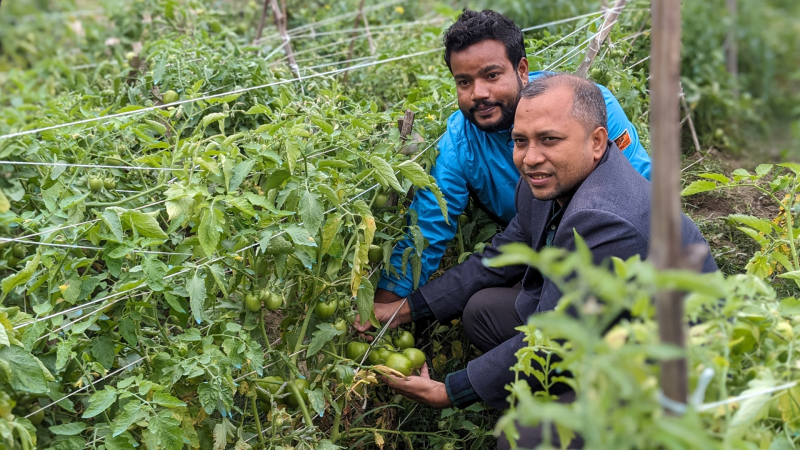
Now, partnering with Azizul Haque, Mwamburi wants to prevent tomato infections through targeted biological control. Her role is to develop a strategy based on fungi that naturally live in the soil to halt the worm's attack. "We know that some microscopic soil fungi act as natural worm-killers for tomato plants," explained Mwamburi, who researches the potential of Trichoderma asperellum and Beauveria bassiana as pest controlling agents. "They are harmless if eaten by humans, but block the life cycle of the pest."
Field tests revealed that adding fungi to the tomato plants protected them not only from the worms but other creatures as well. "Tomatoes exposed to these fungi become more resistant towards other parasites," she observed. "Thinking of scaling up their use in agricultural practices is, therefore, a natural goal." They would like to conduct more tests to explain the protection mechanism. Therefore, Haque will travel to Kenya soon, to analyse the fungi from the molecular point of view.
Making tomatoes more resistant to pests will help women who work in agriculture. According to a FAO report, in sub-Saharan Africa, 66 percent of women’s employment is in agriculture. And in agriculture, the gender pay gap persists, as women earn 82 cents for every dollar that men earn.
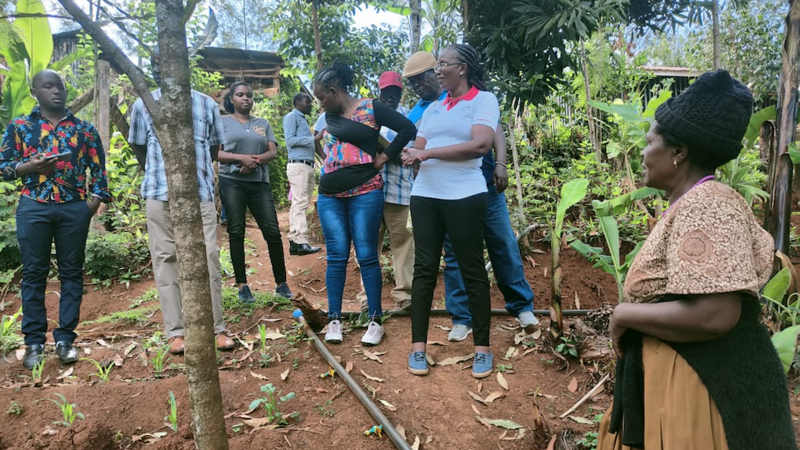
"Men are more involved with major staples like maize, to make money," Mwamburi said. "Tomato farming therefore affects women more than men, because the income from tomatoes is used for daily running of the household."
Soil allies
The tomato leafminer is a moth that is especially dangerous when in its larval stage. It chews the plant tissues from the inside, inhibiting photosynthesis and causing 80-100% loss in tomato production.
Common in many parts of the world, the tomato leafminer first arrived in Bangladesh in May 2016 and soon turned into a major plague for local farmers. Because farmers spread pesticides without understanding the real soil needs or efficacy, the country is experiencing a high amount of residues in vegetables. This is where Haque's expertise in microbial genetics and pesticide-degrading genes is useful.
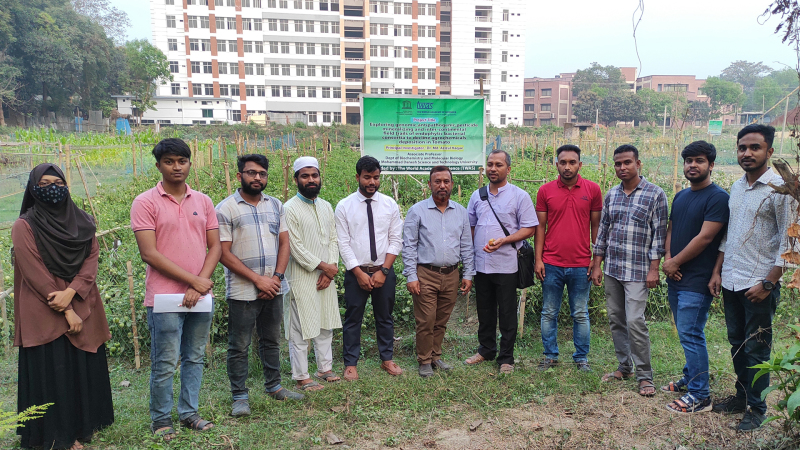
"We are selecting bacteria that can degrade insecticide residues in the soil, while still protecting the crops," the scientist explained. "Chemical residues accumulate in consumers' bodies, leading to non-communicable diseases like diabetes, cancer, and also abortion and infertility. This is becoming a problem in Bangladesh."
Haque has spotted about 80 promising bacterial strains and sequenced the DNA of more than 65. Recently, he has shortlisted the most interesting ones. "About 36 strains look really promising when sprayed on experimental fields as 'biofertilizers'," he said. "They protect tomatoes from pests but also give higher yields, because they promote the roots' growth, enhancing the fruits traits."
If compared to tomatoes that received conventional chemical treatment, Haque noted, the external peel of the biofertilizer-treated fruits grows thicker, and the tomatoes are more robust. In addition, their post-harvest resistance is increased.
"Without Sida's support I wouldn't have been able to purchase the equipment for my lab, and find the right bacterial strains," he added. "Sida has also increased my reputation; I have supervised six master's students theses.”
Involving stakeholders
Scientific findings must be translated into everyday life, and reaching out to farmers and private institutions who would use their results is a vital part of the project.
"Encouraging farmers to adopt integrated pest management—that is combining bacteria and fungi instead of spraying pesticides—needs training. To this purpose, we regularly invite farmers to public demonstrations at Eldoret University," Mwamburi said.
Last September, the Kenyan scientist coordinated a three-day event to showcase her results. In November, at another event, she convened representatives from private companies and industries. "My early steps as a woman scientist were not easy. Receiving funds from Sida played a major role because it brought visibility to my work. Now, being a woman is no longer an issue," she noted.
Haque organized public presentations with farmers, to prove that the combined use of bacteria and fungi can also substitute for fertilizers like phosphorous and nitrogen, which are often used in excess becoming an ecological challenge.
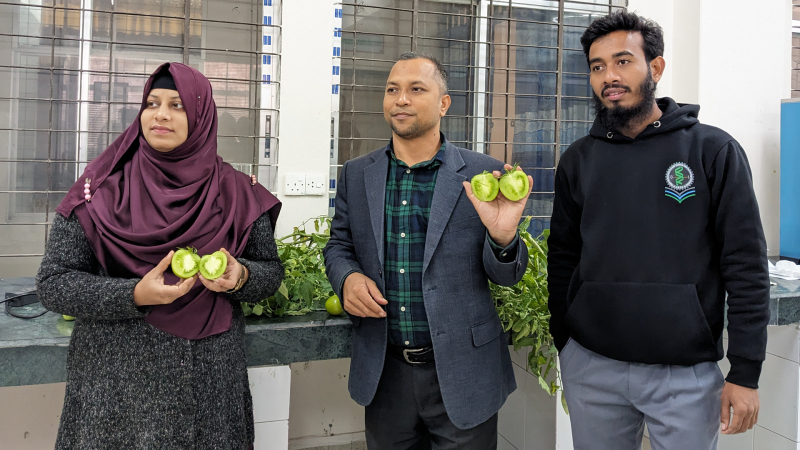
Haque has also devised an innovative bio-fermenter—a liquid chamber with an ad hoc medium where he plans to scale up the bacterial growth—for which he has submitted a patent application. At present, the scientists have two joint scientific articles and other patents in the pipeline, and new requests for collaboration from the Czech Republic, Saudi Arabia, and Spain.
Cristina Serra

